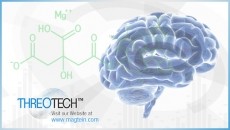Higher vitamin E doses may produce better results for heart
health, says a new study from the US that questions the
'under-dosing' used in earlier clinical trials.
The study, published early online in Free Radical Biology and Medicine , reports that a higher dose - 3200 International Units - of vitamin E is needed to reduce oxidative stress in individuals at risk for cardiovascular disease, and this may be why previous trials using lower doses failed to show any benefits for the vitamin.
"Randomised placebo-controlled trials evaluating the efficacy of vitamin E in preventing cardiovascular events in aggregate have failed to show a beneficial effect," wrote the authors, led by Jack Roberts from Vanderbilt University.
"Implicit in these trials is that the dose of vitamin E tested effectively suppressed oxidative stress status but this was never determined," they added.
By focussing on the ability of vitamin E (RRR-alpha-tocopherol) to reduce levels of F2-isoprostanes, a biomarker of free radical-mediated lipid peroxidation, the researchers found that higher doses of the vitamin were needed to counteract oxidative stress in people with high cholesterol levels and enhanced oxidative stress.
There are eight forms of vitamin E: four tocopherols (alpha, beta, gamma, delta) and four tocotrienols (alpha, beta, gamma, delta).
Alpha-tocopherol (alpha-Toc) is the main source found in supplements and in the European diet, while gamma-tocopherol (gamma-Toc) is the most common form in the American diet.
A number of epidemiological and animal studies have reported that antioxidants like vitamin E, vitamin C and beta-carotene might offer some protection against heart attack in individuals at risk.
But when vitamin E was tested in subsequent controlled clinical trials the results proved disappointing, with no significant effects observed by many of the studies.
These results caused many to discount vitamin E supplementation as a cardioprotective treatment, but the Vanderbilt researchers suspected that the studies had been poorly designed - the trials used a single dose of vitamin E and only looked for end points such as heart attack occurrence.
Roberts and co-workers recruited eight participants (average age 34, seven women) for a time-course study and assigned them to receive 3200 IU of RRR-alpha-tocopherol for 20 weeks.
They report that 16 weeks of supplementation was needed to achieve maximum suppression of plasma F2-isoprostane concentrations.
A double-blind randomized placebo-controlled study was performed with 35 volunteers (average age 42, 23 women) to investigate the effects of different doses on plasma F2-isoprostanes concentrations.
The volunteers were placebo or 100, 200, 400, 800, 1600, or 3200 IU of vitamin E daily for 16 weeks
The researchers report a dose-dependent effect of vitamin E on the percentage reduction in plasma F2-isoprostane concentrations.
Statistical significance of the reduction was achieved with the higher doses, with 1600 IU reducing F2-isoprostane levels by 35 per cent, and 3200 IU of the vitamin producing a 49 per cent reduction.
"It was clear that large doses - and doses in excess of what all clinical studies had used - were necessary," said co-author Jason Morrow.
"Even with this massive dose of vitamin E, you only observe a 50 percent reduction in F2- isoprostanes," added Roberts.
"So in my opinion, vitamin E is not the spiffy antioxidant everybody thinks it is - it's a pretty poor antioxidant."
The authors added a note of caution, however, stating that the results do not advocate taking vitamin E in large doses.
They did state that measures like F2-isoprostane measurement should be used in future studies of antioxidants in atherosclerosis prevention.
"The results of this study should provide a framework for future studies assessing the ability of therapeutic agents to suppress oxidant stress in humans," wrote the authors.
"Specifically, we have now what is generally recognized to be a reliable approach to assess oxidative stress status in humans, i.e., measurement of F2-isoprostanes."
They also stated that concerns raised by in vitro studies that vitamin E may act as a pro-oxidant at certain concentrations were not backed up by data from their study.
"Our data, and those of others, suggest that over a very wide dose range this is not the case in vivo," they said.
The study was welcomed by Daniel Fabricant, vice president, scientific and regulatory affairs for US trade association, the Natural Products Association, as a "very well done multiple ascending dose study."
Fabricant told NutraIngredients.com: "Most dose ranging studies use a disease free population, the subjects in this group all had polygenic hypercholesterolemia, which is the group that may benefit the most from vitamin E supplementation, thus it is more of a targeted approach in looking at markers (F2-isoprostanes), the dynamics and some basic kinetics (i.e. reduction in plasma concentration), while additional ADME (absorption, distribution, metabolism, and excretion) type data will be helpful in nailing down an optimal dosing range (which should be conducted in a disease free and larger study population (this will be helpful in accounting for gender differences as well)."
"This is a very practical approach to address a large problem with a number of studies on nutrients, where no effect was observed due to the dose being too low.
This is very timely considering some of the recent information on intake levels of other nutrients, like vitamin D (i.e. Am.
J. Clin.
Nutr., Vol. 85, pp. 860
-868; J. Nutr.
Vol. 137, pp.
447-452)," he concluded.
Source: Free Radical Biology and Medicine (Elsevier) Published on-line ahead of print, 4 July 2007, doi: 10.1016/j.freeradbiomed.2007.06.019 "The relationship between dose of vitamin E and suppression of oxidative stress in humans" Authors: L.J. Roberts II, J.A. Oates, M.F. Linton, S. Fazio, B.P. Meador, M.D. Gross, Y. Shyr and J.D. Morrow












